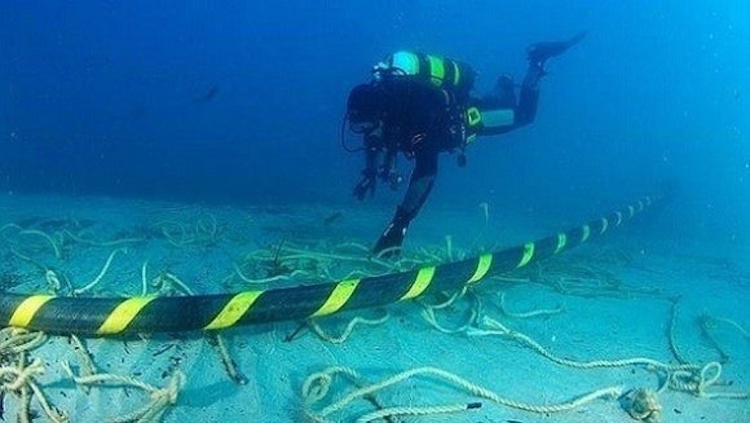
Image source: Techpoint Africa. – Photo: 2024
By Lisa Vives, Global Information Network
NEW YORK | March 17, 2024 (IDN) — What would a world without cell phones be like? No long distance service? No digital cellular network? It’s hard to imagine because billions of people around the world can now call relatives, do business, or exchange information without having to put it in writing.
In the 50 years since its invention in 1849, the telephone has become an indispensable tool, until this week in West and Central Africa, reports Netblocks. a watchdog organization that oversees cybersecurity and internet governance, Multiple undersea cable failures have cut Africa off from the world.
The exact cause of these failures is currently unknown.
According to Netblocks, Côte d’Ivoire faced the worst outages, while Liberia, Benin, Ghana and Burkina Faso were severely affected. Internet company Cloudflare confirmed through one of its monitoring accounts that Gambia, Guinea, Liberia, Côte d’Ivoire, Ghana, Benin and Niger are experiencing significant disruptions.
As of 8 a.m., banks were closed across Nigeria, Côte d’Ivoire and Ghana.
In recent years, network outages due to damaged cables have frequently occurred in Africa. However, “today’s disruption is indicative of a much larger disruption (and) is one of the most severe,” said Isik Mater, research director at Netblocks.
In some cases, closures are intentional. In Senegal, for example, the communications ministry instructed mobile operators to halt internet access on Tuesday, just ahead of a silent march planned by activist groups.
The purpose of the march was to protest against the sudden postponement of the presidential election scheduled for February 25. Violent clashes last week left three people dead and many arrested.
But regarding the undersea power outage, writing for The Conversation, associate professor Jess Auerbach Jahajeeah noted that since March 14, much of West and Central Africa, as well as Some countries in the southern part of the continent have been without internet service due to the failure of four fiber optic cables running beneath the world’s oceans.
Nigeria, Côte d’Ivoire, Liberia, Ghana, Burkina Faso and South Africa are among the 10 most affected countries. Microsoft is warning its customers that repairing cables could take a long time. West African data center and connectivity provider MainOne blamed the internet outage on a failure of its undersea cable system.
South Africa is in a relatively good position
South Africa seems to be in a relatively good position, but in several African countries, including Sierra Leone and Liberia, there is actually only one fiber optic cable entering the country. When cables break, Internet traffic in these countries essentially stops. Namibia and Lesotho are also affected.
“This will naturally have a huge impact on all aspects of life, business and even politics,” Jahajia continued. “While some communications can be rerouted via satellite, satellite traffic only accounts for about 1% of global digital transmissions.”
Questions are now being raised about so-called “digital colonialism,” she said. “Previously, cables were jointly funded by public and private sector partners, but now large private companies such as Alphabet, Meta and Huawei are increasingly financing cable infrastructure. This has serious implications for the control and monitoring of digital infrastructure. Influence.”
“Poorer countries often have no choice but to accept the terms and conditions of wealthy corporate entities. This can be extremely dangerous for Africa’s digital sovereignty and we should see more public discussion.” [IDN-InDepthNews]
Image source: Techpoint Africa.
IDN is the flagship organization of the nonprofit International News Syndicate
